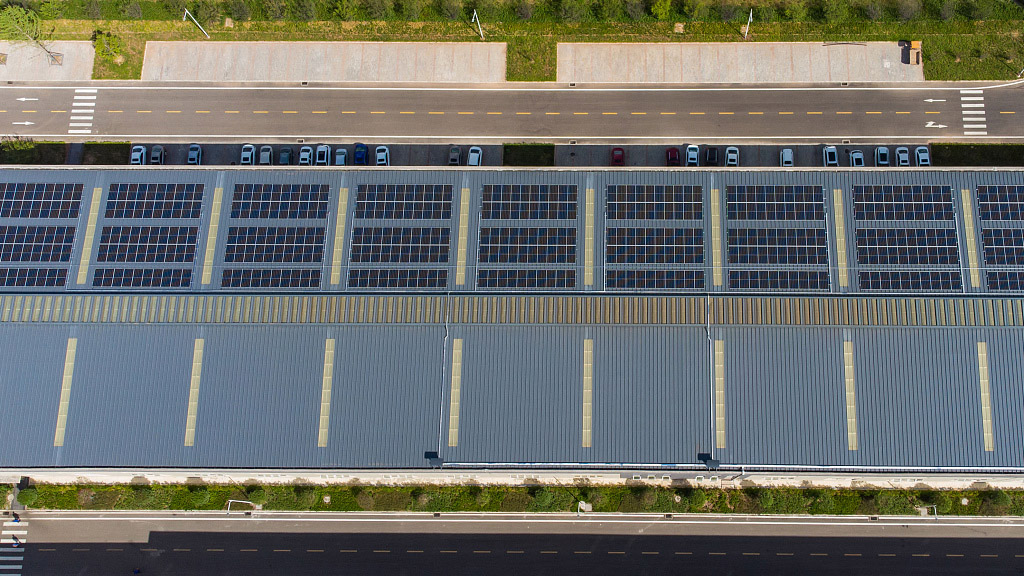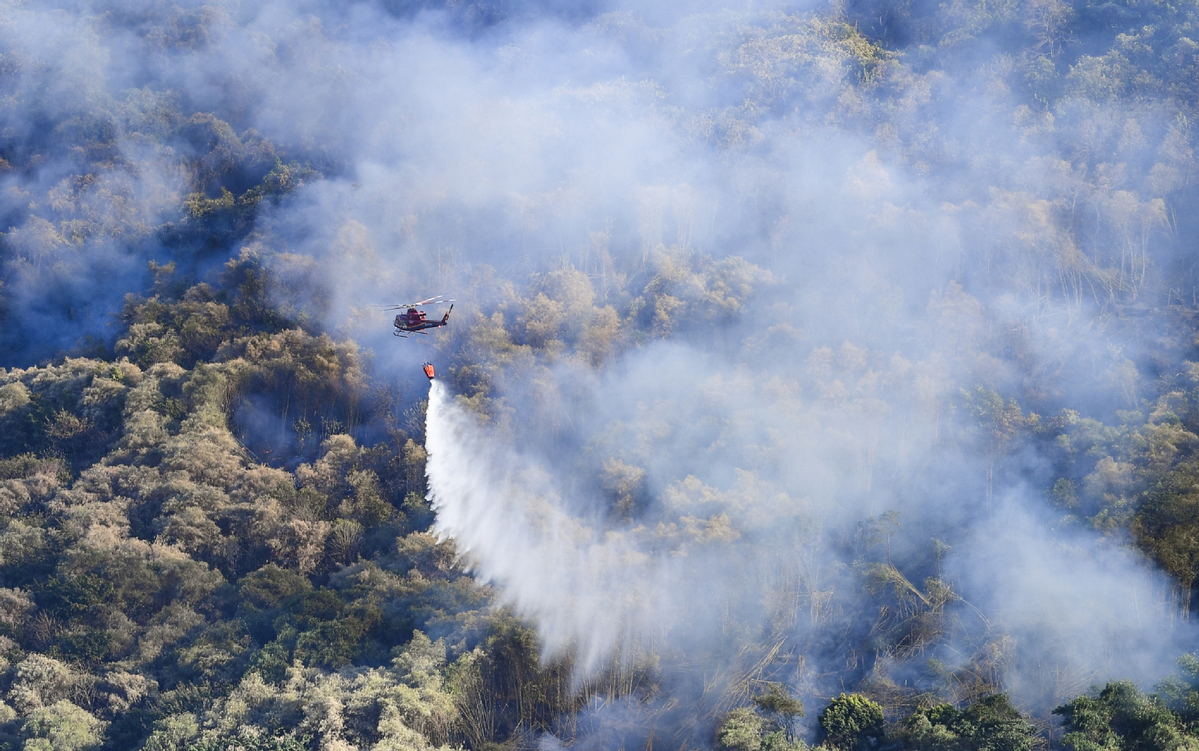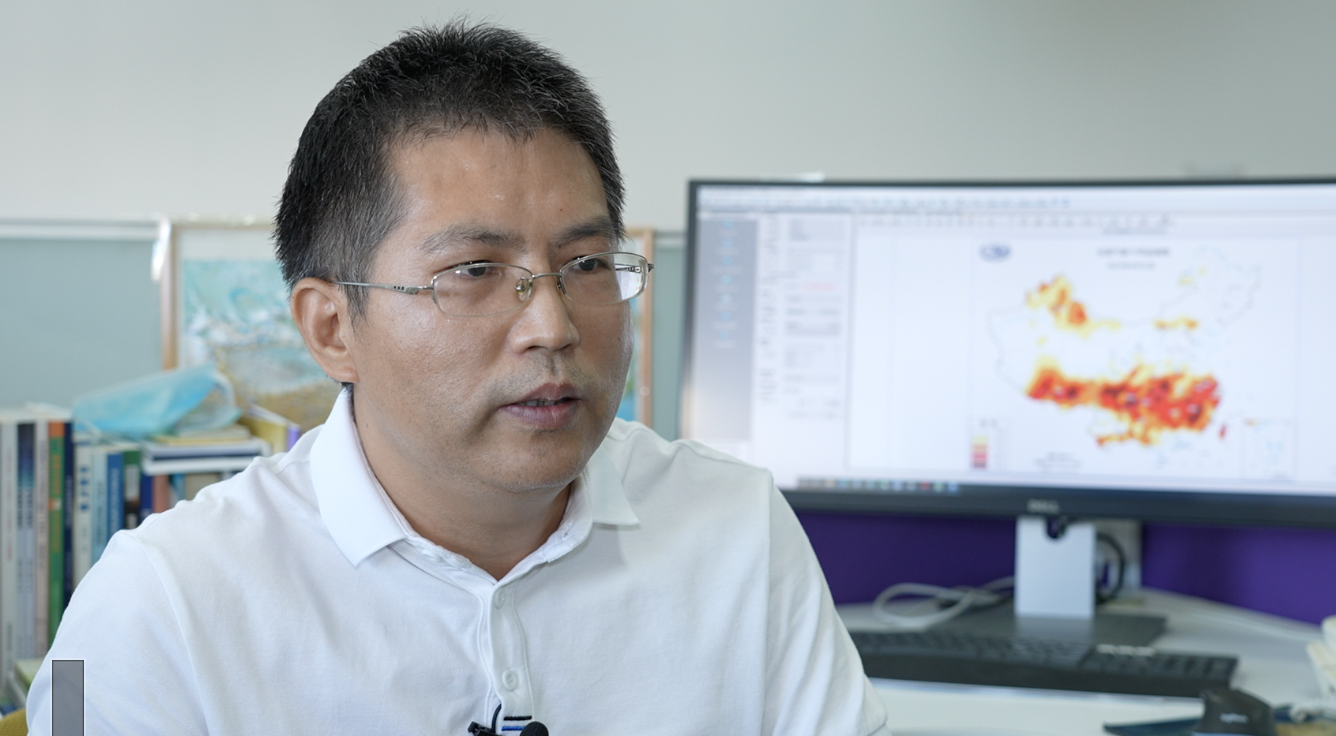
A rooftop equipped with a photovoltaic power system in Chongqing Municipality, August 8, 2022. /CFP
A rooftop equipped with a photovoltaic power system in Chongqing Municipality, August 8, 2022. /CFP
Red alert warning for heat continued in China for the 12th day on Tuesday. The country has also issued its highest-level forest fire alert for the first time this year.
Officials have warned people in different areas, including the southwestern city of Chongqing and Sichuan Province, about the possibility of "extreme and dangerous" forest fires until Thursday. But respite is approaching, as weather authorities say the heatwave will slowly relent its grip starting Wednesday.
Yuan Bin from China's Public Weather Service said Tuesday that the current power shortages will also ease at the same time, as demand for power goes down and solar power stations operate better in lower temperatures. However, Yuan said that hydraulic power generation is expected to remain low in the coming days as all reaches along the Yangtze River are running low on water.

A helicopter drops a fire retardant in Chongqing, August 18, 2022. /Xinhua
A helicopter drops a fire retardant in Chongqing, August 18, 2022. /Xinhua
Heat, drought strain agricultural production
Some areas in Chongqing have reported that rice paddies are ripening up earlier than usual. Experts say this summer heat has already posed some serious challenges to the country's staple foods.
Prof. Liao Yaoming from the National Climate Center told CGTN that agricultural production has already been seriously affected, from rice to soybean production.
"In the middle and lower reaches of the Yangtze River, single-crop rice and late-rice have been affected along with cotton blossoms. In the southwest, corn and soybean growth has been impacted. For some areas, it could mean lower yield or even total wipe-out of crops," he said.

Professor Liao Yaoming with the National Climate Center in Beijing, August 22, 2022. Sun Ye/CGTN
Professor Liao Yaoming with the National Climate Center in Beijing, August 22, 2022. Sun Ye/CGTN
Moreover, the impacts may drag over to next year. For example, tea production for next spring is not looking well for those south of the Yangtze River.
Liao also said orange, mango, banana and vegetable harvests, mostly cultivated in south China, have been off to an alarmingly bad start this year.
At the same time, he suggested some coping measures. "In the face of heat and drought, to-the-point crop management could ameliorate these negative impacts. For rice growth, water supply and reasonable irrigation would be essential to offset the harm that the heatwave has done. For areas producing tea, fruits and vegetables, we suggest the produce is shielded from direct sunlight," he said.
China's weather authorities say heat will seemingly ease for a little while in the middle of the week. But meteorologists also say that in September, the better part of southern China could still face sustained higher temperatures and much less precipitation.
For more: Will typhoon Ma-on save southern China from its heatwave?

